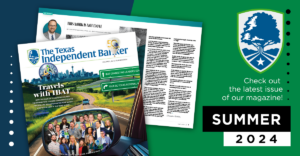As the 140-day legislative session enters its final quarter, approaching constitutional deadlines later this month are expected to significantly slow the progression of legislation between chambers. In other words, it’s crunch time at the Texas Capitol.
Last week was particularly impactful, as IBAT combated ill-conceived legislation aimed at addressing “swipe fees” at the point of sale. At issue are two bills, the first of which would exclude taxes and tips from the calculation of interchange fees at the point of sale. In testimony, IBAT President and CEO Christopher Williston highlighted that this complete rewriting of the payments process would only result in merchant savings of approximately $250 per every $100,000 in sales.
“Despite what you have heard from small businesses on this issue,” Williston said, “this proposal only matters at scale. It should be called out as the money grab from large retailers that it is.”
Elsewhere, IBAT has been combating bills in the House and Senate that would prohibit chargeback fees to merchants, eliminate the ability of card issuers to use “default interchange” price schedules and require reporting to consumers of the amount of interchange the merchant was charged on each of their transactions. Despite applying only to credit card issuers with over $85 billion in assets, the IBAT Executive Committee resolved to oppose the bill due to its harmful impact on small businesses, which would be excluded from credit card acceptance until they could negotiate a fee schedule with each card issuer.
“Large banks have a difficult time meeting minimum customer service standards for their own customers,” Williston said in testimony last week. “IBAT lacks confidence that they will take time to work with small merchants to negotiate rate schedules. This will leave our smallest business customers unable to accept the payment methods of choice for many consumers.”




